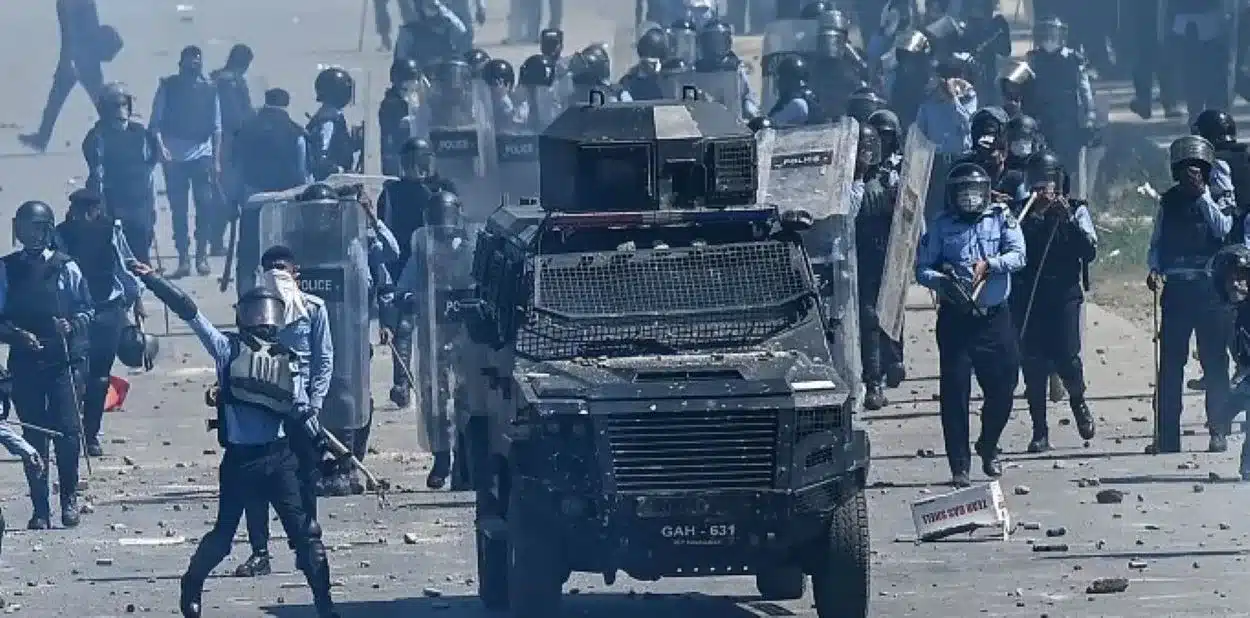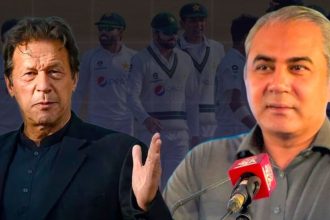The government has resolved to legally pursue protestors who perpetrated assaults on civilian structures under the auspices of the anti-terrorism law. At the same time, those who defaced military property will face prosecution under the Army Act.
This decision represents a departure from initial plans to charge individuals implicated in the violence following the arrest of PTI leader Imran Khan in military courts, as indicated by the National Security Committee’s decisions. The NSC had supported the action against rioters under the Army Act. Still, criticisms from both domestic and international groups have pushed the government to differentiate between the two groups.
Prime Minister Shehbaz Sharif clarified in a Sunday meeting that those assaulting civilian infrastructure would be tried in anti-terrorism courts. At the same time, cases concerning military properties, like the Corps Commander House, would be adjudicated under appropriate laws.
The Prime Minister referred to May 9 as the country’s “darkest day” when alleged PTI members incinerated the Corps Commander House in Lahore, compared to the attack on Quaid-i-Azam Residency in Ziarat in 2013. The premier drew parallels between the PTI and the banned Tehreek-i-Taliban Pakistan concerning attacks on military installations, stating that the PTI supporters, like the militants in the past, turned against their country and targeted Radio Pakistan and other buildings nationwide.
Regarding the legal actions against the rioters, he reiterated that anyone involved in planning, incitement, sloganeering, or vandalism would not evade the law.
At a meeting reviewing the legal aspects of the May 9 protests, the Prime Minister was briefed by Punjab Caretaker Chief Minister Mohsin Naqvi about the measures taken against the offenders. As a result, they decided to send cases of those damaging public property to anti-terrorism courts, while those harming military infrastructure would face military courts under the Army Act.
Sharif also highlighted his passion for transforming the Pakistan Kidney and Liver Institute (PKLI) into a world-renowned medical institute, expressing disappointment at the political and personal interests that had caused significant harm to the institution. However, despite the setbacks, he reaffirmed his commitment to restoring and uplifting PKLI, lauding Dr. Saeed Akhtar and his team’s efforts.
Defence Minister Khawaja Asif dispelled the notion of establishing new military courts to prosecute rioters, stating that existing courts under the Army Act would handle such cases. He accused a political leader and his supporters of running a campaign against the armed forces.
PML-N members are eagerly awaiting the imprisonment of PTI leadership. Expressing frustration over the delay in legal action, Senator Irfan Siddiqui lamented the sluggish pace of proceedings against the suspects by his own party’s government. He pointed out the swifter response of the UK government to the London riots in 2011 as a contrast.






